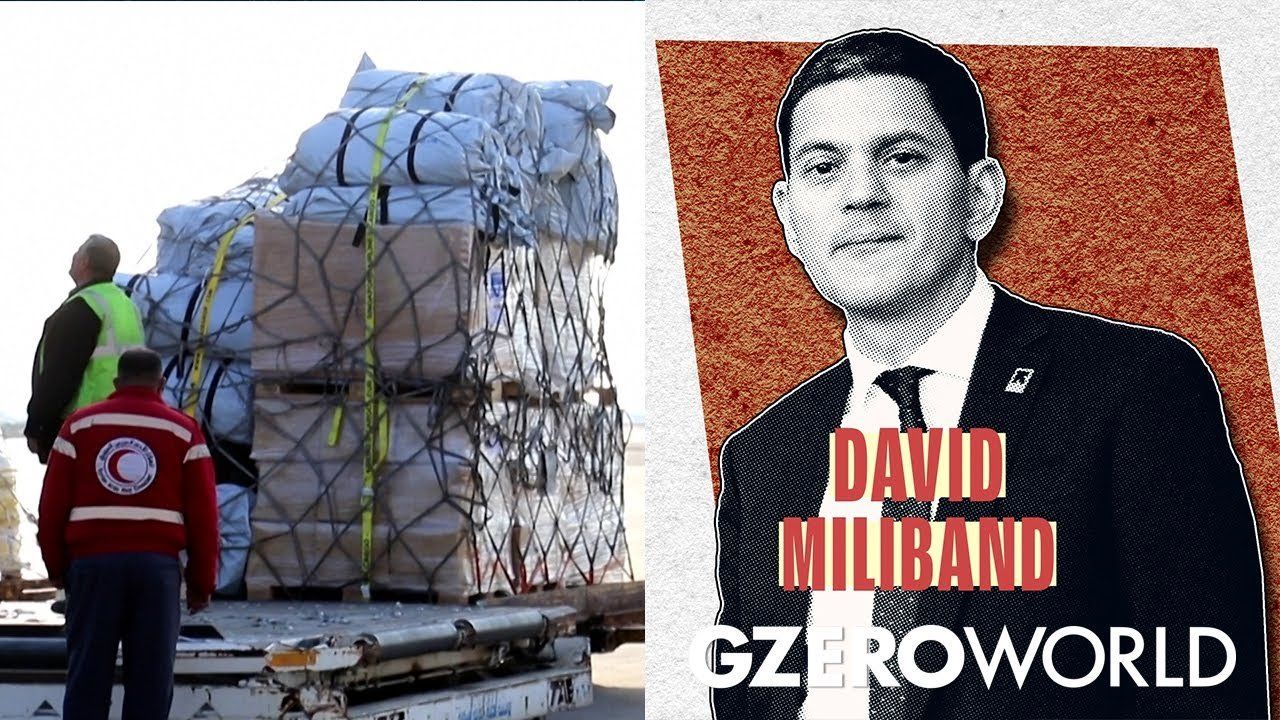GZERO World Clips
Earthquakes expose political and humanitarian challenges in Turkey and Syria

Earthquakes expose political and humanitarian challenges in Turkey and Syria | GZERO World

In a recent episode of GZERO World, the International Rescue Committee's President and CEO, David Miliband, sheds light on the immense challenges of delivering aid in the aftermath of the deadly earthquakes that rocked Turkey and Syria. With the northwest of Syria controlled by armed opposition groups, aid delivery remains a hurdle that needs to be overcome urgently.
Miliband highlights the compounded crises in Syria, with inadequate medical care, cholera outbreaks, freezing temperatures, and ongoing border skirmishes threatening the survival of the population. He notes, "Hope is hard to find if you live there."
The political repercussions of the earthquakes are already being felt in Turkey, with citizens demanding accountability for lax building standards and corrupt permit systems. Miliband draws parallels to the 1999 earthquake, which saw accusations of corruption and the ousting of the prime minister. He predicts that the government's response to the disaster will be a hot-button issue in the upcoming election.
But it's not just about politics. The migrant crisis is an urgent humanitarian issue, with Miliband emphasizing the need for fair and humane treatment of those who have been driven from their homes. As he puts it, "We need to fulfill legal as well as moral obligations."
GZERO World heads to the World Economic Forum in Davos, where Ian Bremmer lookst at how President Trump’s second term is rattling Europe, reshaping both transatlantic relations and the global economy, with Finland’s President Alexander Stubb and the IMF’s Kristalina Georgieva.
Think you know what's going on around the world? Here's your chance to prove it.
How widely is AI actually being used, and where is adoption falling behind? Speaking at the 2026 World Economic Forum in Davos, Brad Smith, Vice Chair and President of Microsoft, outlined how AI adoption can be measured through what he calls a “diffusion index.”
U.S. President Donald Trump holds a bilateral meeting with NATO Secretary General Mark Rutte at the World Economic Forum (WEF) in Davos, Switzerland, January 21, 2026.
After saying numerous times that he would only accept a deal that puts Greenland under US control, President Donald Trump emerged from his meeting with NATO Secretary General Mark Rutte singing a different tune.